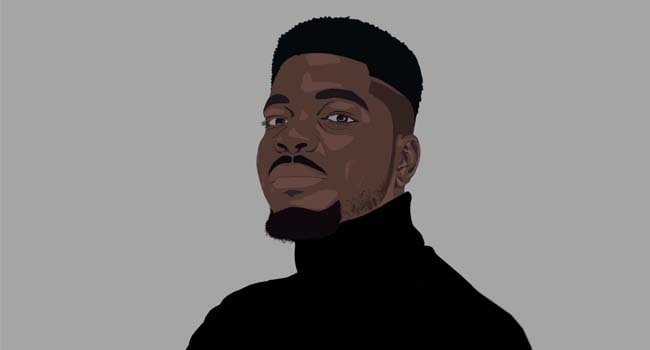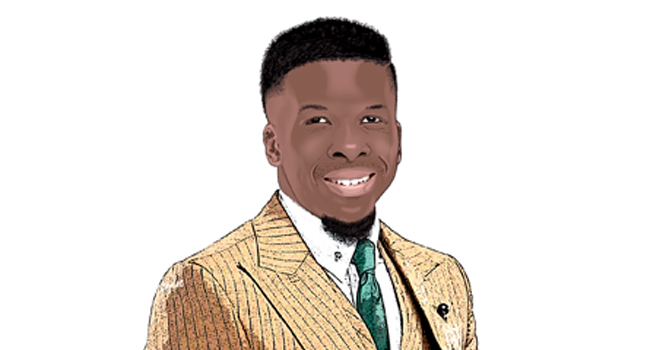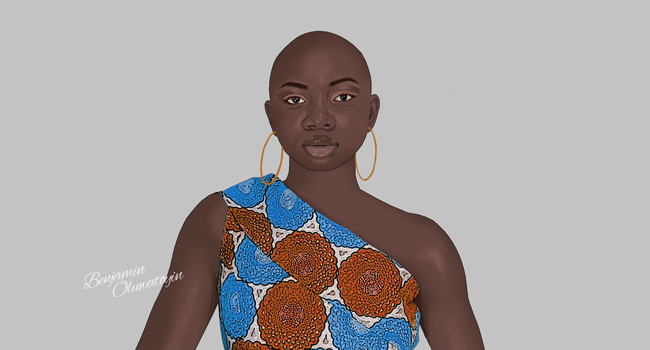
Anyone looking for gadget reviews on YouTube has probably come across a Fisayo Fosudo video. Presented in a casual and smart format, they are usually fun to watch and littered with valuable information. But making videos wasn’t always smooth-sailing for Fisayo.
First Class is a column about extraordinary Nigerians aged 35 years and below. It collects their thoughts on what it takes to thrive as a young person in Nigeria.
Do you know someone who fits the bill? Recommend a name here.
Sign up to receive the latest installment of exclusive First Class interviews in your email.
This interview has been edited for clarity and conciseness.
SE: What does success mean to you?
FO: I would say in the end, success for me would be giving people value. I want people that come in contact with my work to leave better than they came. The more people I can give value to in that regard, the more successful I will be.
Tell me about your work, how did it all start?
There are so many things that went into starting to make videos. But I just wanted to teach people stuff. I wanted to also create a very engaging tech community. And mostly focusing on technology, especially mobile technology, smartphones, apps, accessories and things like that. In the end, I want to just be a source for as many people as possible when it comes to mobile technology, personal finance and everything in between. These are the things I’m interested in. And I want it to be as fun as possible.
What was it like in the beginning?
In 2016 I had saved up a lot of money. It was about $5,000 at the time. I think dollars was still N350 or so. It was like my life savings from freelance and graphic design work. And I just took all my life savings and dumped it into acquiring camera equipment and I thought it should work out fine. But it didn’t really work out the way I wanted it to work out in the beginning. But I just knew that good results don’t always come overnight, it would take a while. There was a time when I was broke after spending all that money, but I guess it kind of paid off in the end, because I was able to persevere. And I still had a job at the time. I was using the hours that were my own, not my employers, to make videos. And also still doing my freelance work. It was a very rough first and second year; and I’ve been making videos for five years now.
What made you persevere?
There are many black people that are doing this great work. There’s someone called Marques Brownlee. He is somebody that I look up to as well. I’ve seen many creators, albeit from abroad; I thought it would be nice to be in this position, especially for a continent like Africa.
What are some of the mistakes you made while starting?
One of the mistakes was – I wouldn’t really say it’s a mistake – I invested a little too much. I put in everything I had in the beginning even though I do not have a roadmap or proper path per se. I just had this blind faith that I want to do this thing and it must work out by force. So, I sunk in money I saved for a whole year. I didn’t do my proper research. I remember at the time when I ordered everything, Customs collected everything and said I had to pay $1,000 in import duties. And I didn’t have any money at all. So I had to ask people and nobody was willing to give me. I was 21-years-old. No one would give a 21-year-old a thousand dollars. So, I had to ask my employers at the time. They were very kind to help. And at the same time, I used my skills to better the company as well; with the gear I bought, I also did work for the company. So it was kind of a win-win situation. That was one of the things I learnt as well – trying to do my proper research before jumping on something. But then again I can say in hindsight that it paid off.
I think another mistake is not learning financial education earlier. I wasn’t making the most savvy financial decisions, but I think knowing what I know now, I kind of have a better idea of how to manage money.

What kind of bad financial decisions did you make?
There were times when I would just have any money at all. Even when I started making videos and making some money, I wasn’t really saving, wasn’t accounting for all my expenses, wasn’t doing a budget. But now every single thing I spend money on, I write it down. There was no financial discipline.
What would you describe as your breakthrough moment?
I was nominated for this award called the Future Awards Africa, and I think we got verified on Google. I learned that it was because of the award. The award kind of added some sort of visibility and made us seen everywhere. And I also recently won an award. It was a sign that people were noticing the value that we were creating for people. Although I still don’t feel like I’ve done anything now. I feel like there’s still so much for me to do. But I think the fact that people can notice is a beautiful thing. I feel like I haven’t had a breakthrough moment per se, but those are moments I cherish.
What is your goal for the next five years?
Definitely to be able to educate more people. Maybe over a million people subscribed to my channel and other platforms where I try to educate people and give them any kind of informative value. That’s just the goal for me – make people much better when they come in contact with my videos.
For someone starting a career, what would you advise?
Don’t think of money in the beginning. Think of the solution you are trying to provide and the value you are trying to give. Just think of the way you are going to make someone’s life better. Because if you start thinking of money in the beginning, the decisions you make will be geared towards just making; and it’s not always the best decision. Money is good, but having that as a major focus doesn’t always help.
I just know that nobody is going to stick around if they are not benefiting. I think it’s just the way we are. There’s one simple analogy that I use, which centres around Google being the biggest search engine and YouTube being the second biggest search engine. Whenever people go on Google, they search for problems that they have: how to fix this or that. If you have a video that answers that question, definitely you will solve problems.
For me I am making videos about smartphones, mobile technology and things like that, and sometimes finance. Whenever people watch these videos, what I want them to leave with is I learnt something from this video, I was better off, this video taught me how to invest or save better. As long as you are educating people, you will leave a mark on their minds. And they usually will come back and be interested in other stuff you do.
“There was a time when I was broke after spending all that money, but I guess it kind of paid off in the end, because I was able to persevere.”
You live and work and spend a significant amount of time in Nigeria. Do you think of leaving the country?
I think everybody at some point thinks of leaving but then again, if everybody leaves, who is going to build Nigeria? I don’t know. I feel so bad – not for people – but that we are in this situation where Nigeria is the least-preferred option. A lot of people I know have left already or are about to leave. There’s a joke we make that when everybody leaves, the last person should switch off the generator. So I think it’s what it is. If people don’t like a commodity, they won’t buy it. Just the way right now many people prefer to save in dollars, because the naira is being devalued and inflation is eating away everything. I can’t really blame people because, again if the commodity is not doing what it says it would do, they’ll rather buy something else.
Why haven’t you left? You are optimistic about Nigeria’s future?
I think I want to be optimistic about Nigeria. I pray that Nigeria is better off. But the more I keep looking at the facts, the more everything seems gloomy. I think we can only hope, but the unfortunate thing is hope is not a strategy. You can’t hope your way into success. You have to do some work.
What do you think young people should do or can do?
I think this country is not going to be better until we start focusing on education. I have been reading books on why the US and Japan have developed the way they have. And one country took on the task of doing student loans. Out of the millions of students, hundreds of thousands of them will be the smart ones who eventually build your country. I don’t think we value education in Nigeria that way. And unfortunately, we are running budget deficits; and we don’t have so much to invest other than servicing our debts. We can’t ignore corruption as well. I won’t say it is straightforward, but if we can get education right, if more people can become more knowledgeable, I think that’s a good step forward. But sadly I don’t see anyone talking about this enough.
Who do you think qualifies as a First-Class Nigerian?
I don’t really know people like that. But I think I really like Iyin Aboyeji. I like what he’s building with all his companies. He has built two Unicorns. He’s created some amazing value, not just for himself, but for Nigerians.
First Class is a column about extraordinary Nigerians aged 35 years and below. It collects their thoughts on what it takes to thrive as a young person in Nigeria.
Do you know someone who fits the bill? Recommend a name here.
Sign up to receive the latest installment of exclusive First Class interviews in your email.




